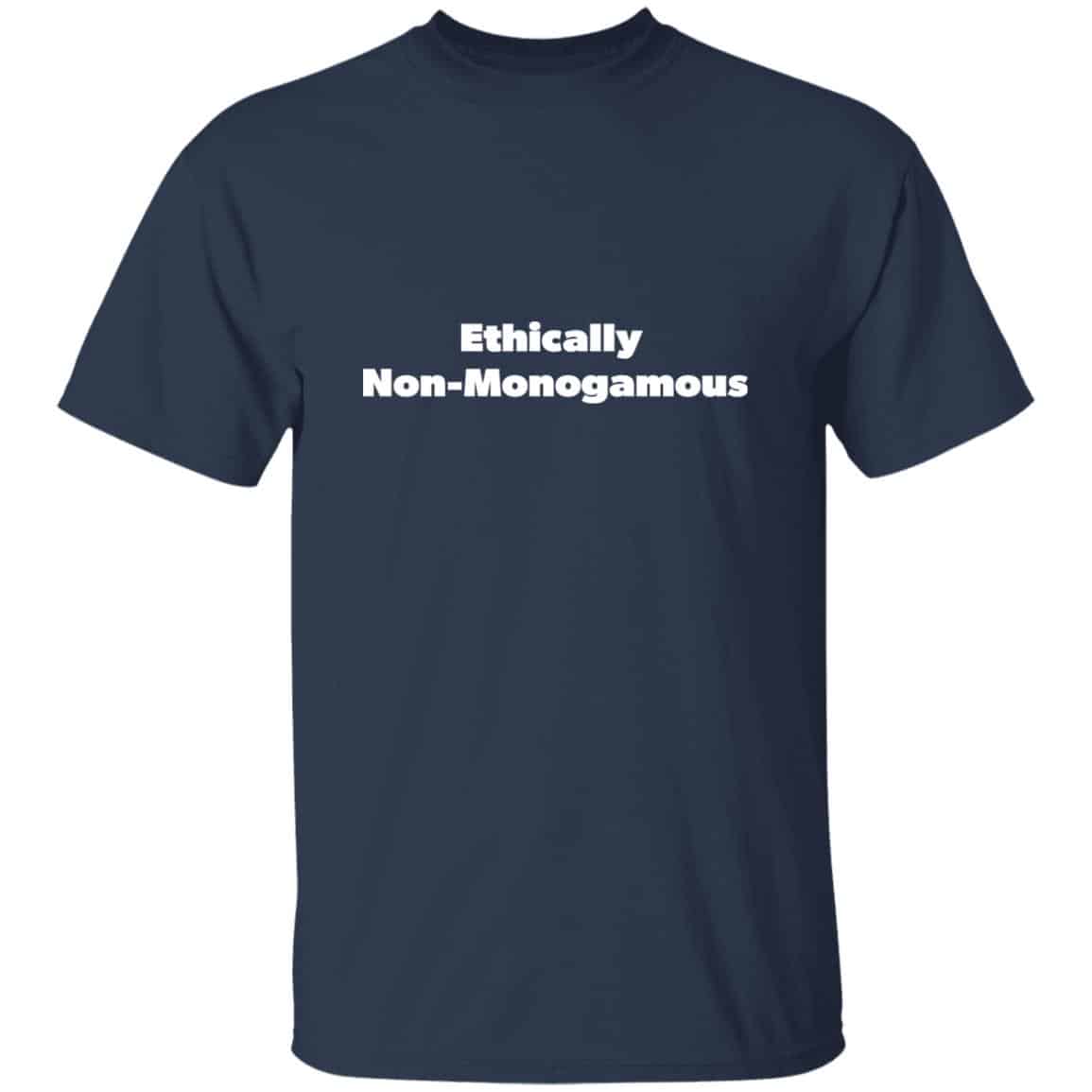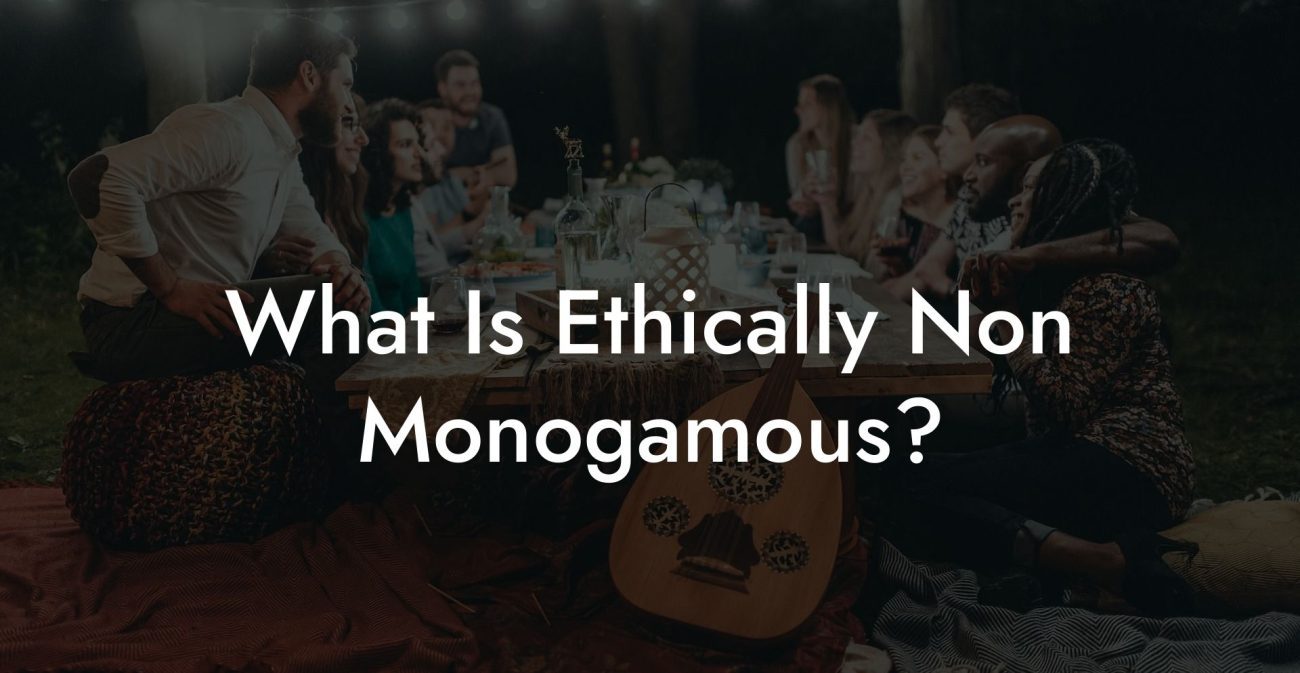So here's the deal, if you're reading this, chances are you've stumbled upon the term "ethically non-monogamous" and you're curious about what it really means. Maybe you've heard about it from a friend, or maybe you've been exploring relationship options and this concept caught your attention. Well, buckle up because we're diving deep into the world of consensual non-monogamy and uncovering everything you need to know. Ethically non-monogamous relationships are becoming more mainstream, and understanding them can open doors to healthier, more fulfilling connections.
Let's break it down for you, partner. Ethically non-monogamous relationships aren't just about sleeping around or disregarding boundaries. They're about creating agreements, fostering open communication, and building trust with your partner(s). It's about redefining what love, intimacy, and commitment mean to you. And trust me, it's not as wild or chaotic as some people might think. In fact, when done right, it can be incredibly rewarding.
Now, I know what you're thinking. "Isn't this just cheating?" or "Won't it ruin the sacred bond of marriage?" But hear me out, friend. Ethical non-monogamy is all about mutual respect, honesty, and setting clear expectations. It's not about sneaking around or breaking promises; it's about building a relationship structure that works for everyone involved. So, let's get into the nitty-gritty of what makes these relationships tick.
Read also:Unveiling The Usher Age A Comprehensive Dive Into The Era Of Transition
What Does Ethically Non-Monogamous Mean?
Alright, let's start with the basics. Ethically non-monogamous is a fancy way of saying that people are choosing to have more than one romantic or sexual partner, but they're doing it in a consensual, transparent, and respectful way. It's not just about sleeping with multiple people; it's about building meaningful connections while being upfront about your intentions. You can think of it like a buffet of love, where everyone gets to choose what they want, as long as they're all on the same page.
Here's the kicker, though. Ethical non-monogamy isn't just one-size-fits-all. It comes in different flavors, and each couple or group can tailor it to suit their needs. Some might prefer polyamory, where they have multiple loving relationships simultaneously. Others might lean towards swinging, which focuses more on sexual exploration with others. And then there's open relationships, where partners agree on certain boundaries while allowing for outside connections. The key here is that everyone involved is aware and agrees to the arrangement.
Why Choose Ethically Non-Monogamous Relationships?
Let's be real, traditional monogamy isn't for everyone. Some people find that they crave more variety, deeper emotional connections, or even just a different kind of intimacy that monogamy doesn't always provide. Ethically non-monogamous relationships offer flexibility and freedom to explore those desires without feeling guilty or sneaky about it. It's all about self-awareness and understanding what makes you tick.
For instance, some folks might feel stifled by the idea of being with just one person for the rest of their lives. They may want to experience love and connection in different ways, with different people. Others might simply enjoy the thrill of novelty and excitement that comes with expanding their relationship circle. Whatever the reason, ethical non-monogamy allows people to pursue their authentic desires while maintaining integrity and respect for their partners.
Benefits of Ethical Non-Monogamy
So, what's in it for you? Well, there are plenty of upsides to embracing ethical non-monogamy. First off, it can lead to deeper self-awareness and communication skills. When you're in a non-monogamous relationship, you're constantly forced to confront your feelings, fears, and desires. This level of introspection can be incredibly empowering and transformative.
Additionally, ethical non-monogamy can enhance trust and honesty in your relationships. Since everything is out in the open, there's less room for misunderstandings or secrets. You and your partner(s) are constantly checking in with each other, ensuring that everyone's needs are being met. And let's not forget the potential for greater sexual and emotional fulfillment. With multiple partners, you can explore different aspects of intimacy and connection that might not be possible in a monogamous setup.
Read also:Britt Rescigno Age The Untold Story Behind The Viral Sensation
Common Myths About Ethically Non-Monogamous Relationships
Now, before we go any further, let's debunk some of the myths surrounding ethical non-monogamy. One of the biggest misconceptions is that it's just an excuse for cheating. Wrong! Ethical non-monogamy is all about consent and transparency. Cheating, on the other hand, involves deception and betrayal. Another myth is that these relationships are inherently unstable or doomed to fail. But research shows that when done ethically, non-monogamous relationships can be just as successful and satisfying as monogamous ones.
Then there's the idea that people in ethical non-monogamous relationships don't truly love their primary partner. Again, not true. Love isn't a finite resource, and many people in these relationships experience deep, meaningful connections with multiple partners. It's all about expanding your capacity for love and intimacy, rather than limiting it to one person.
How to Navigate Ethical Non-Monogamy
So, you're intrigued by the idea of ethical non-monogamy, but you're not sure where to start. No worries, partner. Here's a quick guide to help you navigate the waters:
- Start with self-reflection: Before jumping into anything, take some time to think about what you want from a relationship. Are you looking for emotional connections, sexual variety, or both? Understanding your own desires is key to setting healthy boundaries.
- Communicate openly: Once you've figured out your needs, it's time to have an honest conversation with your partner(s). Discuss your expectations, fears, and boundaries. This will help ensure that everyone is on the same page.
- Set clear agreements: Whether it's about safe sex practices, time management, or emotional boundaries, make sure you establish clear guidelines for your relationship. This will prevent misunderstandings down the road.
- Be prepared for challenges: Ethical non-monogamy isn't always sunshine and rainbows. There will be times when jealousy or insecurity creeps in. But with open communication and a willingness to work through issues, you can overcome these hurdles.
Is Ethical Non-Monogamy Right for You?
Alright, let's get real. Ethical non-monogamy isn't for everyone, and that's perfectly okay. It requires a lot of emotional maturity, self-awareness, and communication skills. If you're someone who values independence and enjoys exploring different aspects of love and intimacy, it might be worth considering. But if you're more comfortable with the traditional monogamous setup, there's nothing wrong with that either.
The key is to be honest with yourself and your partner(s) about what you want and need. Don't feel pressured to conform to societal norms or expectations. Your relationship is your own, and you have the power to shape it in a way that works for you. Whether you choose monogamy, ethical non-monogamy, or something in between, what matters most is that you're happy and fulfilled.
Addressing Jealousy in Ethically Non-Monogamous Relationships
Let's talk about the elephant in the room: jealousy. It's a natural emotion, and even the most experienced ethical non-monogamists experience it from time to time. The difference is how they handle it. Instead of ignoring or suppressing their feelings, they confront them head-on and work through them with their partners.
Here are a few tips for managing jealousy in ethical non-monogamous relationships:
- Practice self-compassion: Remind yourself that feeling jealous doesn't make you a bad person or a bad partner. It's a normal human emotion, and acknowledging it is the first step towards resolving it.
- Communicate openly: Share your feelings with your partner(s) without judgment or blame. This will help them understand where you're coming from and allow them to support you better.
- Focus on gratitude: Take a moment to appreciate the love and connection you have with your partner(s). This can help shift your focus away from jealousy and towards appreciation.
Building Trust in Ethical Non-Monogamous Relationships
Trust is the foundation of any successful relationship, whether it's monogamous or non-monogamous. In ethical non-monogamy, trust becomes even more crucial because you're dealing with multiple partners and potential complications. So, how do you build and maintain trust in these relationships?
It all comes down to consistency and reliability. Follow through on your commitments, be honest about your actions, and check in with your partner(s) regularly. Building trust takes time, but with effort and intention, it's definitely achievable.
Legal and Ethical Considerations
Now, let's talk about the legal and ethical side of things. While ethical non-monogamy is becoming more accepted, it's still important to be aware of the laws and cultural norms in your area. In some places, certain non-monogamous practices may be frowned upon or even illegal. So, make sure you're familiar with the laws and regulations that apply to you.
Ethically speaking, always prioritize consent and respect for your partner(s). Remember that ethical non-monogamy is about creating a positive, fulfilling experience for everyone involved. If at any point you feel uncomfortable or pressured, it's okay to reassess your boundaries and make adjustments as needed.
Resources for Ethically Non-Monogamous Relationships
If you're ready to dive deeper into the world of ethical non-monogamy, here are a few resources to help you along the way:
- Books: "The Ethical Slut" by Dossie Easton and Janet W. Hardy is a classic guide to consensual non-monogamy. "Opening Up" by Tristan Taormino is another great resource for understanding the nuances of open relationships.
- Communities: Join online forums or local groups where you can connect with others who are exploring ethical non-monogamy. These communities can provide support, advice, and a sense of belonging.
- Counseling: If you're struggling with jealousy, communication, or other issues, consider seeking out a therapist who specializes in non-traditional relationships. They can offer valuable insights and guidance.
Conclusion
And there you have it, folks. Ethically non-monogamous relationships are a fascinating and rewarding way to explore love, intimacy, and connection. They require effort, communication, and a willingness to challenge societal norms, but the payoff can be immense. Whether you're just curious or ready to take the plunge, remember that your relationship is your own, and you have the power to shape it in a way that works for you.
So, what are you waiting for? Dive in, explore, and embrace the beauty of ethical non-monogamy. And don't forget to share your experiences and insights with others. The more we talk about it, the more we can break down stigma and create a more accepting world for everyone.
Table of Contents
What Does Ethically Non-Monogamous Mean?
Why Choose Ethically Non-Monogamous Relationships?
Common Myths About Ethically Non-Monogamous Relationships
How to Navigate Ethical Non-Monogamy
Is Ethical Non-Monogamy Right for You?
Addressing Jealousy in Ethically Non-Monogamous Relationships
Building Trust in Ethical Non-Monogamous Relationships
Legal and Ethical Considerations


